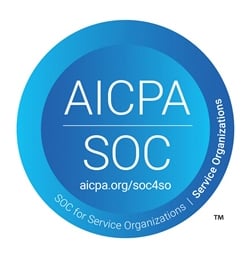Building trust in data ecosystems, impacts of decentralized identities and self-sovereign identities
With the increase of sectorial data spaces, current data storage technologies and identity management gives rise to apprehensions regarding privacy, security, and user autonomy. As a response to these challenges, decentralized identities (DiD) and self-sovereign identities (SSI) have emerged as promising remedies. This article aims to delve into the concepts of DiD and SSI, examining their importance within the context of the recent Gaia-X works.
Decentralized identities (DiD) refer to a paradigm where individuals have control over their digital identities without relying on a central authority or intermediary. Traditional identity systems often suffer from issues like data breaches, single points of failure, and lack of user autonomy. DiD can tackle these shortcomings by leveraging blockchain and distributed ledger technologies to create a more secure and user-centric approach.
Self-sovereign identities (SSI) can be seen as a specific subset of DiD. SSI emphasizes the individual's right to control their own identity information. SSI empowers users by enabling them to store their identity attributes in a secure, tamper-evident manner while granting them the ability to selectively share these attributes with service providers or other entities. This approach ensures privacy, reduces reliance on third parties, and promotes user autonomy.

Gaia-X promotes the establishment European data ecosystems based on guiding principles such as data sovereignty, interoperability, and trustworthiness. Gaia-X objectives look at enabling a federated and secure data infrastructure to foster innovation and strengthen European digital sovereignty.
In this context, decentralized identities and self-sovereign identities play a crucial role. By adopting these principles, Gaia-X can provide a robust framework for managing user identities while ensuring privacy and data protection. Users will have full control over their personal information, deciding when and with whom they share it, while service providers can rely on trusted and verified identities without being burdened by the complexities of managing personal data.
The benefits of DiD and SSI in Gaia-X are the following:
- Interoperability: DiDs facilitate seamless interoperability between different services and platforms within Gaia-X data spaces. This enables users to navigate multiple applications and services with a unified identity, eliminating the need for multiple accounts and reducing administrative burdens.
- User Empowerment: SSIs put users in control of their digital identities, allowing them to manage their data according to their preferences. Individuals can build trust by selectively disclosing verified information, fostering a more transparent and accountable digital environment.
- Privacy and Security: both DiD and SSI reduce the reliance on centralized infrastructure for Identity Management, minimizing the risk of data breaches and unauthorized access. Users can share only the necessary attributes, preserving their privacy while still meeting service providers' requirements.
Decentralized identities (DiD) is a transformative concept that can revolutionize the way we manage digital identities. DiD and SSI provide a powerful framework for empowering users, ensuring privacy, and promoting data sovereignty. By embracing these principles, each data space can foster a thriving digital ecosystem built on trust, transparency, and user-centricity. As the world continues to grapple with evolving data challenges, DiDs offer a promising path towards a more secure, inclusive, in order to federate identity services in a heterogeneous public/private, ETI/large group context.
Interested in ODRL? Read our blog post “Leveraging ODRL for Compliance as Code – A Comprehensive Framework”



